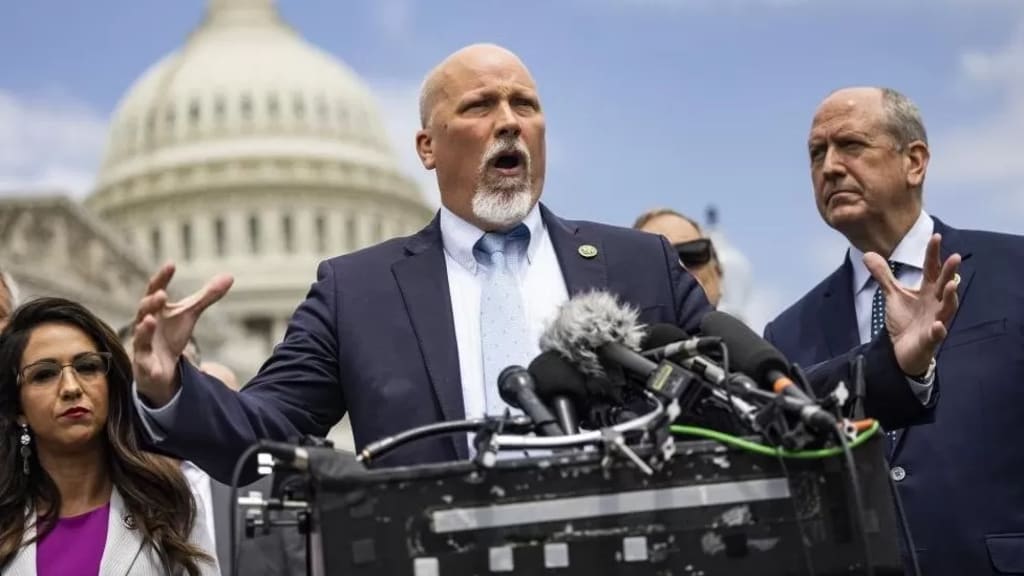House of Representatives passes US debt ceiling agreement over conservative hardliners' uprising
A bipartisan agreement to raise the US debt ceiling is scheduled to come up for a vote on the House of Representatives floor on Wednesday night, despite a defection from a small number of hard-line Republicans. The US Senate will consider the bill if a majority of lawmakers in the chamber agree. Here's how the Capitol Hill drama is developing, along with a timeline of what will happen next.

President Joe Biden and Republican Speaker of the House Kevin McCarthy ultimately came to an agreement to increase the amount of money the US may borrow, prevent a default on the national debt, and impose spending caps on the federal government for the following two years after months of negotiations.
Presently, the two are occupied with pitching Congress on their weekend accord. The US House of Representatives will be the first to vote on the agreement, and that will happen on Wednesday night. Leaders of the Republican and Democratic parties there are confident that they have the votes to approve a bill, maybe with a large majority, despite some left- and right-leaning defections.
After that, the law will go to the Senate, where it will face further difficulties. Democrats hold 51 of the 100 seats in the upper chamber, in contrast to the House's Republican majority. According to legislative regulations, 60 votes are needed to pass the majority of bills, thus a mix of Democratic and Republican votes will be required.
Additionally, those regulations give senators wide-ranging authority to postpone legislation's consideration for several days. There isn't much room for error or delay since the US Treasury estimates that the country will reach its borrowing limit on Monday, June 5.
Utah's Mike Lee, a conservative Republican, has promised to use "every procedural tool" at his disposal to stall consideration of the agreement. If Senate leadership permits the chamber to vote on amendments to the accord, he and other stubborn Republicans might be persuaded to change their minds.
However, if any of those amendments are accepted, it might jeopardise the carefully worked-out balance of the Act and very probably delay final approval past 5 June.
Both the Democratic and Republican Senate leaders support the agreement as it has been negotiated, and they will seek to hasten the passage of the debt-limit agreement to Mr. Biden's desk for signing into law before a default can take place.
The risk of the world's largest economy going into default on its $31.4 trillion (£25tn) debt has temporarily subsided, according to the financial markets, which has caused a sense of serenity.
But that might change as the US gets closer to the Monday debt-limit deadline without making much headway in Congress. When similar brinksmanship brought the US credit rating dangerously near to its borrowing limit in 2011, Standard & Poor's lowered it.
The road to selling the deal has so far proven difficult. On Tuesday, it became evident that some House conservative hardliners would oppose the deal.
Democrats on the left have also voiced displeasure. They claim that only social programmes are affected by the proposed budget cuts, and they complain to the new job restrictions placed on some recipients of low-income aid.
But compared to their conservative colleagues, Democratic hardliners have been less coordinated and less outspoken in their criticism.
11 members of the House Freedom Caucus, an ultra-conservative group, blasted the compromise legislation's budget restrictions and spending cuts during a press conference held on the steps of the US Capitol earlier on Tuesday.
The group's head, Congressman Scott Perry, declared that the agreement "fails completely." He declared that people who supported him "will be absolutely opposed to the deal and will do everything in our power to stop it".
When asked if they would demand the ouster of Mr. McCarthy, a move that would deepen the breach among House Republicans, they likewise avoided answering.
Congressman Chip Roy of Texas, a fellow member of the Freedom Caucus, warned that unless this bill is defeated by tomorrow, "no matter what happens, there will be a reckoning for what just occurred."
Left-wing Democrats who opposed to the additional work restrictions placed on some users of low-income aid and who protested that the projected budget cuts fall primarily on social programmes may also leave the Democratic Party in the House and Senate.
But compared to their conservative colleagues, Democratic hardliners have been less coordinated and less outspoken in their criticism.





Comments
There are no comments for this story
Be the first to respond and start the conversation.